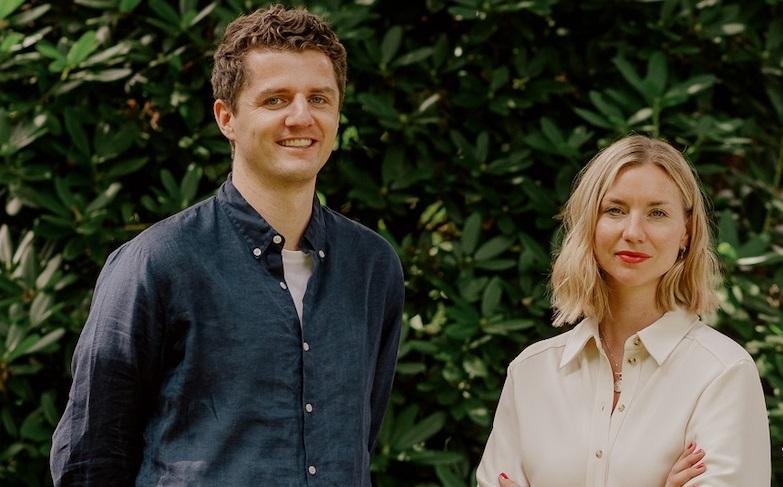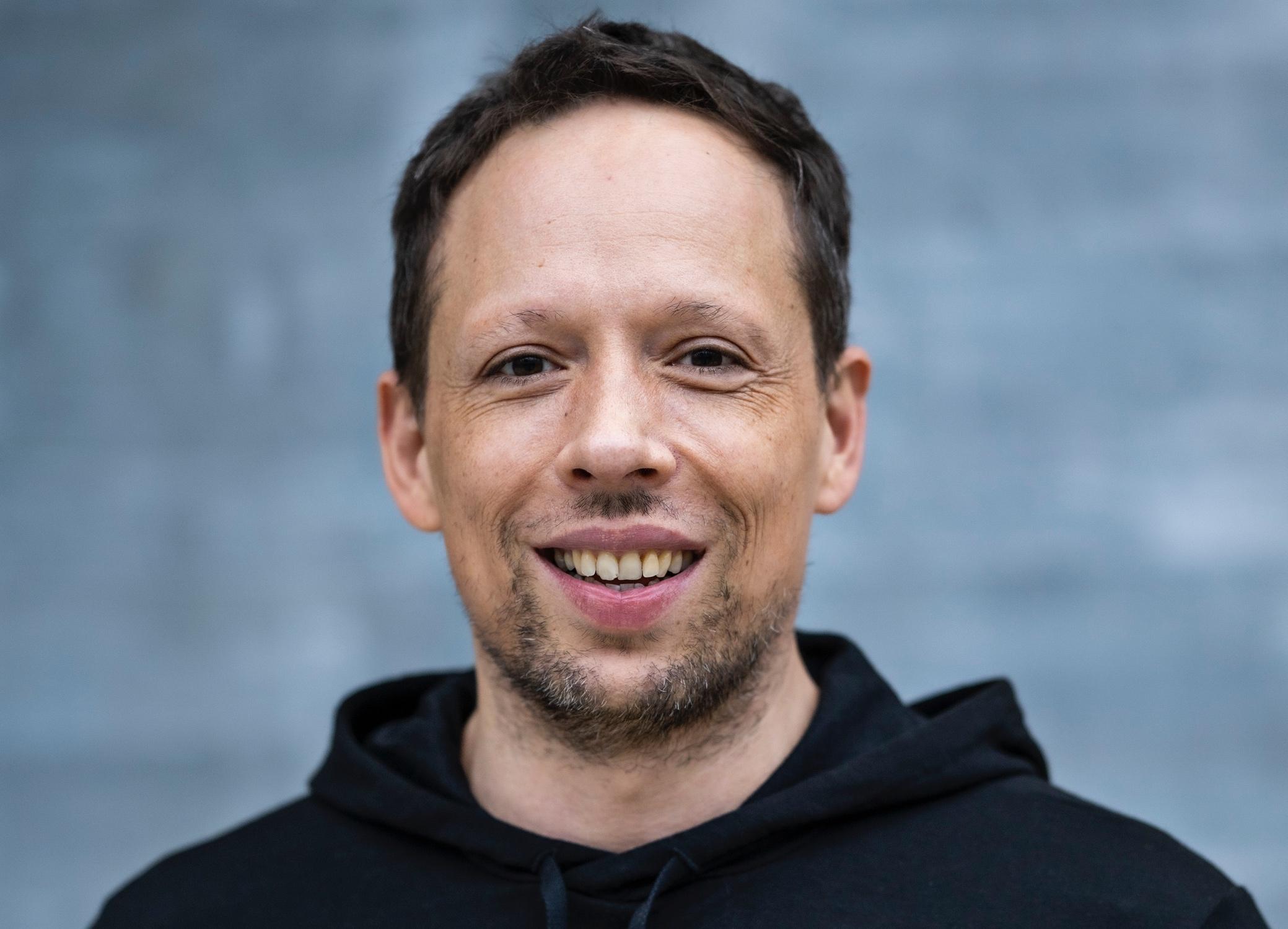"If social relationships don't work, it makes you ill in the long term"

Katharina Wäschenbach and Lukas Weisheit want to help single people and couples with relationship issues with their start-up Dearest. They say that this is becoming increasingly necessary in the age of Tinder and the like.
Katharina Wäschenbach went to couples therapy herself a long time ago, she says. It didn't help her at all back then. In her early 20s, she was unable to speak openly and felt under pressure. At Dearest, she and her co-founder Lukas Weisheit therefore want to do things differently to traditional couples therapists. The fact that it all takes place via an app or online should also help, as the founding duo believe this already puts you under much less pressure.
At best, start-ups should solve problems - which one does Dearest solve?
Lukas Weisheit: If you have relationship problems and are looking for professional help, the only option is to go to a couple's therapist. But this is expensive and you have to wait a long time for appointments. Also, going to therapy is still quite stigmatized. We offer a digital service for single people and couples to come to terms with themselves and their relationships.
Katharina Wäschenbach: We have noticed that couples who need help are getting younger and younger. They are often in their early to mid-twenties. But individuals are also more likely to seek the help of a coach to talk about challenges in their relationships. When social relationships don't work, it makes you ill in the long term. We focus particularly on issues around loneliness and fear of loss and look at how to build healthy long-term relationships.
You write on your own website that dating apps have made it particularly easy to find a partner. Is this ruining our relationships?
Wäschenbach: The fast pace of life definitely encourages an anxious attachment style. Online, we can just keep on dating if things are going badly in a relationship. We don't deal with ourselves and the problems that arise during a relationship. What many simply don't see: Relationship problems often arise from personal problems of the individuals in a relationship. You have to work on yourself in order to work on the relationship.
How exactly does Dearest work?
Weisheit: With our online offer and especially our app, we help users to improve their relationships step by step. We have divided the app into three areas: In the Growth section, users can work with learning content such as articles and videos, and in the Talk section, they can talk to one of our coaches. There is usually an initial meeting beforehand to find out what relationship issues they are currently dealing with. This enables us to decide which of our coaches can best help. Finally, we have launched a Reflect area where our users can reflect on the progress they have already made. In our experience, 30 percent of learning success comes from the sessions with the coaches, the rest from learning success.
Wäschenbach: We see ourselves as a preventative product and want to help people work on challenges and problems at an early stage in order to avoid a long "path of suffering". Sooner or later, disagreements arise in every relationship and arguing can even be very healthy if it is done in the right way. We want to give people this knowledge.
In addition to the counseling sessions, some content is subject to a fee - others are free. What do you make that dependent on?
Wäschenbach: Content relating to introductory topics is generally free of charge. More complex topics, where users need proper guidance, are only available for a fee. Some learning content can be very complex and initially pose questions for users. We have an obligation to ensure that they do well with our offer, so we want to make sure that certain content is only possible in conjunction with coaching.
How many sessions do your users book on average?
Weisheit: It's definitely several hours. There is usually a break of one to two weeks between coaching sessions, during which our users process what they have learned and try to apply it to their own relationship. At peak times, up to ten sessions are booked. This depends on the willingness of the users to delve deeper into the topic.
Are you currently making more money with your paid texts or with counseling?
Weisheit: At the moment, there is the option to unlock all learning content and then there is also the option to book coaching sessions. What we want to introduce soon is an option where both are possible, because that brings the most added value. In future, customers will also be able to unlock content and book coaching minutes with the same subscription. Unlocking content is more suitable for people who don't want to delve quite as deeply into the topic yet. This is currently the majority of our users, although more and more are booking additional coaching sessions.
If you currently pay nine euros a month, you can book additional coaching sessions for 99 euros each. Is this actually supported by health insurance?
Weisheit: Users pay the costs themselves because couples therapy is generally not covered by health insurance. However, we would like to be certified by the Central Prevention Testing Center so that the costs can be reimbursed. The financial aspect should not be a reason why someone cannot deal with these issues. Our prices are already more affordable than many traditional couples therapists, some of whom charge up to 250 euros per session.
Wäschenbach: For health insurance to pay for couples therapy, clients would have to prove that they have a psychological problem that is causing the relationship to break down. But hardly anyone does that.
You want to be more low-threshold than traditional couples therapy and appeal to young people. Do you have an age limit for your own coaches?
Wäschenbach: No, we don't have an age limit. We have a quality standard for the selection of our therapists: All of them must have basic psychological training, i.e. a degree in psychology, so that they can be certified as coaches. Our team also includes some psychotherapists who can also take on clinical cases.
What is your biggest learning from the founding period?
Wäschenbach: For me, the biggest challenge was fundraising, where I play an active role. I am often the only woman in the room in such meetings, which was a completely new experience for me at the beginning. The biggest learning for me was therefore to develop my own good mental health. If 99 out of 100 investors say no, you can be particularly proud of that one person. Many no's are completely normal. Taking care of yourself is incredibly important, because only if I'm doing well can my company do well too.
Where do you see your start-up in five years' time?
Wäschenbach: At the moment, we mainly deal with romantic relationships and offer quick help with problems in this area. In the future, we want to cover all social relationships, whether professional or familial, for example. In five years' time, we see ourselves as the trusted place where anyone can go if they have questions about any form of relationship.
Do you have a role model?
Weisheit: Our role model comes from a different area. We always found Headspace fascinating. The start-up has managed to destigmatize what is actually a 'niche' topic, namely meditation, and turn it into a global business that inspires an incredible number of people.
About the people:
Katharina Wäschenbach founded Dearest together with Lukas Weisheit. Both have worked for years in leading positions in fast-growing companies. As Head of People & Culture, Wäschenbach was responsible for scaling Heycar and Foodspring, while Weisheit worked at Fab, Hy! and built up Beam, the company builder of the Beumer Group.

Newsletter
Startups, stories and stats from the German startup ecosystem straight to your inbox. Subscribe with 2 clicks. Noice.
LinkedIn ConnectFYI: English edition available
Hello my friend, have you been stranded on the German edition of Startbase? At least your browser tells us, that you do not speak German - so maybe you would like to switch to the English edition instead?
FYI: Deutsche Edition verfügbar
Hallo mein Freund, du befindest dich auf der Englischen Edition der Startbase und laut deinem Browser sprichst du eigentlich auch Deutsch. Magst du die Sprache wechseln?












